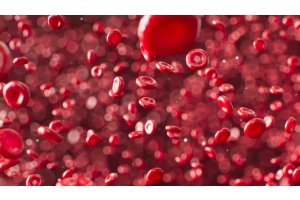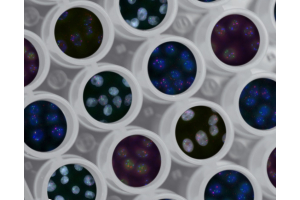Where data and humanity meet: an algorithm to improve medicine pricing models
Last updated: 01 November 2019
You can legally access new medicines, even if they are not approved in your country.
Learn more »Recently, everyone.org has been in conversation with esteemed oncologist Prof.dr. Bob Löwenberg and health economist Prof. Carin Uyl-de Groot. Both Löwenberg and Uyl-de Groot’s joint experience is vast and they provide an important view on increasing access to new medicines in an area that needs investigation: what exactly is fair pricing of new medicines?
Löwenberg and Uyl-de Groot have been active in researching and defining a potential new approach for the pricing of medicines. In particular, anticancer medicines.
It’s clear that the current national and international pricing models for anticancer drugs is not sustainable. In 2012, 14.1 million people were diagnosed with cancer worldwide, and a 68% increase in incidence is forecasted by 2030. However, there still remains vast discrepancies in outcomes and access to treatment. Both within wealthy countries and even more when compared with low income nations.
Löwenberg, Uyl-de Groot and a team of experts propose that there’s a solution within reach. They theorised that a combination of data and technology could determine fair and accurate pricing models for new anticancer medicines. The expected outcome is a streamlined process from approval to first sales of medicines, and equitable adaptive prices for medicines to drive global access.
The problem, Löwenberg and Uyl-de Groot explain, can be understood broadly as four key areas for consideration. Firstly, that a free market does not work for anticancer medicines. In particular, the competitive, profit-driven pharmaceutical industry is fuelled by stock market-dominated high profit expectations. Furthermore there is an informational imbalance between doctors, patients and pharma companies with varying motives. In addition, there are too few participants in the pharmaceutical market, with almost monopolistic control.
A second consideration is that prices of anticancer medicines possibly do not correlate with Research & Development costs. Löwenberg and Uyl-de Groot suggest that all phases of R&D are used as motivations for high medicine costs (when a vast majority of the medicines are abandoned during trial phase) and that sales and marketing costs of medicines far outweigh R&D. Thus, the high prices set for new anticancer medicines cannot be justified and need a new mode for analysis.
Thirdly, price negotiations at a national level between government and industry representatives are non-transparent and vary substantially from country to country.
And lastly, that current access to innovative drugs is unequal. For example, the US and EU hold only 11% of the world population and 30% of new cancer patients, yet these regions dominate the worldwide oncology drug market at around 78% jointly. Spending on cancer patients varies between territories and national access to innovative medicines is unequal.
A novel pricing model built around a smart algorithm aims to solve these issues and, as such, ‘evolutionise’ the health management industry. The algorithm would factor in R&D costs, sales, manufacturing and marketing costs, and adaptive profit margins against clinical benefit, number of patent years and number of patients worldwide. The algorithm is thus smartly designed to stimulate innovation, linking the profit margin to the level of clinical benefit of the new medicine. There is also room for a country-specific factor to be incorporated into the algorithm, so as to serve price establishment at a national level.
This new algorithm designed by Löwenberg and Uyl-de Groot will be a transformation of the current pricing models and, furthermore, an evolution of the pharma industry to better serve patients and healthcare providers around the world.
Our mission is closely aligned to that of Löwenberg and Uyl-de Groot and, we believe, can work in partnership with existing pharmaceutical development and distribution methods. By working together we aim to leverage the technology, science and expertise of pharma experts to create a quicker route from approval to global availability and affordability of medicines for patients who need them most. This is founded on the belief that access to health for everyone is the ultimate measure of human dignity.
Resource: Carin A. Uyl-de Groot and Bob Lowenberg. Sustainability and affordability of cancer drugs: a novel pricing model. Nature Reviews: Clinical Oncology, 2018.






